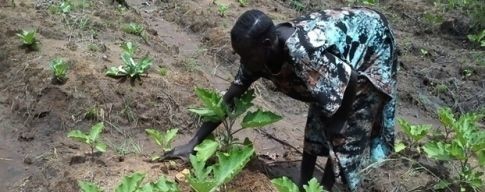The level of rainfall in much of South Sudan was above-normal over the last month, creating good conditions for agriculture where security is stable enough for farmers to plant, according to an organization that monitors food security conditions.
Heavy rains have complicated logistical efforts to provide food and other services to the approximately 1.4 million Sudanese and South Sudanese refugees affected by the crisis within the country and in refugee camps neighboring countries.
But the rains may also encourage cultivation during the current planting season. FEWS-Net, a famine watchdog organization funded by the US international development agency, said in a statement on Friday that recent land preparation and planting were reported in many parts of the country.
“Moderate to heavy rains continued in most parts of South Sudan in the second dekad of May. An estimated 50 to 150 millimeters (mm) of rain fell in the western part of the country. Most parts of the country continued to receive well above-normal rains, with the exception of the southeast,” said FEWS-Net.
Planting in Panyijar County in Unity State began in early May, according to the organization, while some planting has begun also in Ayod, Bor, Akobo East and to a lesser extent, Twic East in Jonglei.
It adds that some displaced people in Minkaman IDP settlement have returned to Bor to prepare land following seed distributions of maize, sorghum and groundnuts.
Land preparation and planting are also ongoing in Maban, Malakal, Akoka and Fashoda counties of Upper Nile.
Long-term rain forecasts suggest normal to above-normal rains from June to September in the central and southwestern areas of the country and normal to below-normal rains in the North and East of the country, including Upper Nile State.
To contact Radio Tamazuj with information, use the contact form on our website. To join the discussion, follow us on Facebook.




